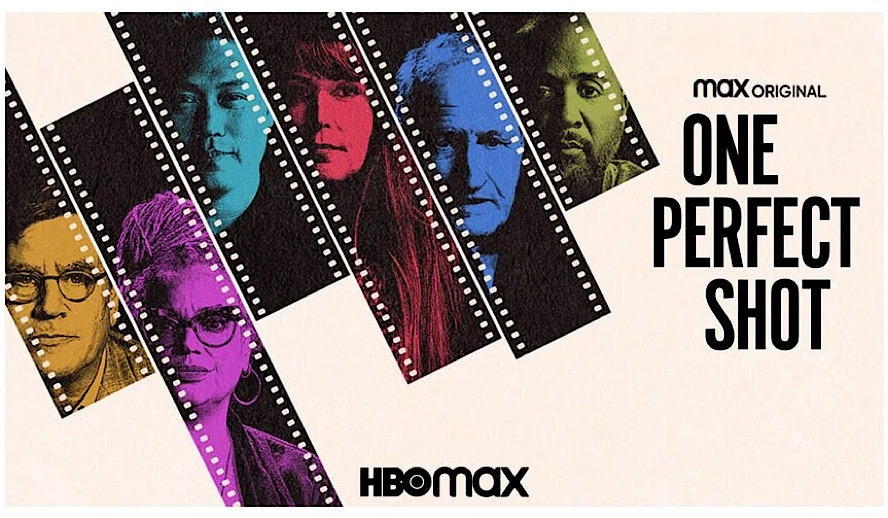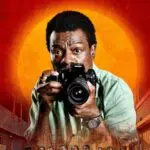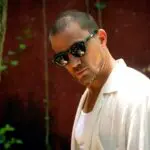Table of Contents

Photo: ‘One Perfect Shot’
A Curious and Possibly Innovative Premise
A specter is haunting ‘One Perfect Shot’, and it’s the specter of cinematography. I’m an avid film lover myself, so it’s only natural that I would follow several film-related accounts on Twitter. I only follow One Perfect Shot (handle @OnePerfectShot) casually, but even if you were to only take a passing glance at it, you have to admit that the premise is simple but effective: share a single “perfect shot” from a movie (any movie, even a movie that might not be good overall), crediting the director, the cinematographer, and the production designer.
What makes a shot “perfect”? It’s hard to explain; Cinema is a visual medium, a series of still images that often express a feeling or idea without things being communicated in words. As such, with One Perfect Shot, we’re not given a verbal or written explanation as to the meaning of the image being presented to us — we just think, or perhaps feel, about the visual splendor of it. There should be little wonder, then, why One Perfect Shot has over 600,000 followers on Twitter.
Related article: OSCAR-NOMINATED – EXCLUSIVE: ‘Dune’ Full Commentary, Reactions, Making Of – Timothee Chalamet, Zendaya, Oscar Isaac
Related article: OSCAR-NOMINATED – ‘House of Gucci’ Full Commentary & Behind the Scenes – Lady Gaga, Adam Driver, Jared Leto, Al Pacino
Related article: OSCAR-NOMINATED – ‘Belfast’ Full Commentary & BTS – Jamie Dornan, Caitriona Balfe, Judi Dench
Related article: OSCAR-NOMINATED – ‘West Side Story’ Full Commentary – Rita Moreno, Steven Spielberg, Rachel Zegler
Related article: OSCAR-NOMINATED – ‘No Time to Die’ Full Commentary, Behind the Scenes & Reactions, Daniel Craig, Rami Malek, Bond
An adaptation of One Perfect Shot, on the other hand, sounds like a bonkers idea — unless you stop to think about it for a minute. Adapting the famous Twitter account into, say, a documentary series, could quite possibly work, even building on the basic but sturdy foundation of the “source material.” Apparently, Ava DuVernay had a similar notion; the Oscar-nominated filmmaker, most known for ‘Selma’ and the hit documentary ‘13th’, is a fairly big name in the business, and she is certainly not without her own virtues as an artist.
The warning signs that ‘One Perfect Shot’ (the docuseries) would leave much to be desired came early, though: for one, despite having helmed a few critically acclaimed movies, DuVernay’s work doesn’t seem all that heavy on visually inventive storytelling. Indeed, despite introducing every episode of the series, and despite granting some insight about her experiences in the industry, DuVernay remains oddly quiet about her own artistic philosophy. I would have to assume, then, that the filmmaking insight would be reserved for directors and cinematographers, who talk about their respective projects.
Disclaimer: Since the subject matter of ‘One Perfect Shot’ heavily involves industry insiders, their careers, and their working relationships, it’s nigh-impossible to comment on the series without also commenting on the people at the center of it. I do not know any of the mentioned people personally, nor do I intend criticism to be taken on a personal level.
Related article: EVOLUTION: Every Henry Cavill Role From 2001 to 2021, All Performances Exceptionally Poignant
Related article: EVOLUTION: Every Chris Evans Role From 1997 to 2020, All Performances Exceptionally Poignant
‘One Perfect Shot’ – An All-Star Cast of Filmmakers (or Maybe Not)
There are six episodes of ‘One Perfect Shot’, each dedicated to a different director, with he/she discussing a particular shot from a particular movie of theirs. The director lineup is — very strange, possibly objectionable, with the directors (in order) being Patty Jenkins, Aaron Sorkin, Kasi Lemmons, Jon M. Chu, Malcolm Lee, and Michael Mann. I have to wonder if DuVernay got in touch with directors she was particularly on friendly terms with, as opposed to contacting the actual top talent in the industry, but there is also the problem of recency bias: with the exception of Michael Mann’s ‘Heat’, from 1995, all of the examined movies were released in the past ten years.
From a certain angle, I can understand why more recent movies were picked, since ideally, you want to interview directors who are still very much alive and well, and while there have been many great directors throughout Cinema history, the vast majority of them are dead now. However, while the aforementioned directors are all certainly capable of producing high-quality work (even, say, “perfect shots”), I don’t know if directors with workmanlike histories like Jon M. Chu and Malcolm Lee would be the wisest picks. It was awkward, for instance, to watch Chu all but verbally acknowledge the fact that many of his films have not been up to the highest standard.
Related article: #metoo Revolution: Powerful Questions That Need Answers
Related article: FACT-CHECKED Series: Timothee Chalamet and 32 Facts about The Young Superstar
Really, the disparity between the directors rears its head the most with the final episode, about Michael Mann and how he worked out the legendary bank robbery sequence in ‘Heat.’ If we are to just take each film’s cherry-picked shot as indicative of that film’s overall quality, then ‘Heat’ is by leaps and bounds the most meticulously crafted of the bunch, made possible by a man who really is a master of his domain. I have to wonder, though, why DuVernay (who not only hosted, but created and co-produced the series) singled out Mann as the only veteran director, with the most prestigious track record; the implication, perhaps unintended, is that mainstream movies were better made three decades ago than today. While Aaron Sorkin is considered one of the best screenwriters currently working, I don’t think anyone will argue that his abilities as a director come even close to his prowess as a screenwriter; ‘The Trial of the Chicago 7’, Sorkin’s chosen film, has often been criticized (even in positive reviews) for its drab aesthetic and flat direction.
A Parade of Representation: Too Much of a Good Thing
Each episode of the show is about 25 minutes in length (it varies slightly), with the directors, alongside fellow crew members like producers and production designers, taking part in a sort of roundtable discussion about what compelled them to make the films that they made, and what shots they had in mind. Patty Jenkins, for example, talks largely about her lifelong dream of getting to direct a movie about Wonder Woman, a superhero she had looked up to since childhood.
Related article: MUST WATCH – The Hollywood Insider’s CEO Pritan Ambroase’s Love Letter to Black Lives Matter – VIDEO
Subscribe to The Hollywood Insider’s YouTube Channel, by clicking here.
Jenkins and Lemmons talk about their experiences as women, while Lemmons, Chu, and Lee talk about their experiences as people of color; Aaron Sorkin talks about what it’s like to be Aaron Sorkin. Representation plays a huge role for both DuVernay and most of the directors — maybe too big a role. Interviewees lean so hard into their backgrounds, as film lovers and as members of one or more marginalized groups in American society, that we actually gain precious little insight into each person’s filmmaking process.
Do I want an “apolitical” version of this series? No. Quite the contrary, I sympathize with most of the viewpoints expressed by DuVernay and her subjects, and I think it would be dishonest to claim segregation between one’s worldview and one’s artistry. I want to point out, however, that French author Honoré de Balzac was a conservative, yet was loved by Friedrich Engels and James Baldwin. Not everyone can be a great artist — and indeed, an artist’s social/political hangups can hamper their potential greatness, but a great artist can come from virtually any political background.
Representation among creative voices is important, of course, but I don’t think giving yourself a pat on the back for increasing diversity in the industry by a slight margin works as an adequate substitute for discussing craftsmanship. I understood what personal significance directing ‘Harriet’ would carry for Kasi Lemmons, but I did not feel much enlightened by her lack of words devoted to that film’s production. I did not feel much connected to Lemmons as a fellow artist (or any of the other directors except for Mann, really) because the show’s creative choices would not let such a connection happen.
Limited Time Offer – FREE Subscription to The Hollywood Insider
Where Have All the Cinematographers Gone?
Out of the show’s six episodes, only two acknowledge the director of photography past a single title card on the lower third of the screen. Time for a pop quiz: If you were to pull up a standard tweet from One Perfect Shot, which crew member would be listed first? The director? The cinematographer? The production designer? If you guessed “director,” you would be incorrect. The cinematographer takes top priority for the Twitter account, but the docuseries all but ignores the cinematographer’s myriad contributions to a film’s visual design. While producers, actors, production designers, makeup artists, costume designers, and even film editors are paid lip service across the six episodes, the cinematographers are treated for the most part like non-entities.
I felt a legitimate shot to my system when Malcolm Lee brought up Greg Gardiner, the cinematographer for ‘Girls Trip’, and for the two to have an actually friendly discussion together; I was only slightly less shocked when cinematographer Dante Spinotti appeared to talk about the making of ‘Heat.’ Never mind that cinematographers barely factor into the substance of ‘One Perfect Shot’ — this is a series where, arguably, the cinematographer should have been put on a higher pedestal than the director. The strangest thing about this series is that it spends so much time harping on about the importance of representation in Cinema that it forgets to represent the people who are meant to be the stars of the show.
Related article: The Hollywood Insider’s CEO Pritan Ambroase: “The Importance of Venice Film Festival as the Protector of Cinema”
Related article: The Masters of Cinema Archives: The Hollywood Insider Pays Tribute to ‘La Vie En Rose’, Exclusive Interview with Director Olivier Dahan
Related article: – Want GUARANTEED SUCCESS? Remove these ten words from your vocabulary| Transform your life INSTANTLY
The Twitter Account Is Better
There is a well-worn saying among readers who come back, disillusioned, from the most recent film adaptation of a novel they adore: “The book is better.” In this case, the Twitter account is better than the adaptation. If you have a soft spot for particular movies, like ‘Wonder Woman’ or ‘Crazy Rich Asians’, then you will probably get something pleasurable out of those episodes, but on the whole, I see this as likely to leave film lovers seriously wanting.
The CG recreations of the locations used for the “perfect shots,” with directors guiding us through their steps like we’re journeying down the yellow brick road, are ingenious in how they provide the viewer with the proper framework, but they do little in giving each shot a sense of majesty. Even with ‘Heat’, which has the most impressive shot composition (not to mention production design), I somehow came out of it feeling like a starving man in a desert. Even when Gardiner and Spinotti were given their proper dues, in the last two episodes, it all seemed too little and too late.
‘One Perfect Shot’ is available to stream on HBO Max.
By Brian Collins
Click here to read The Hollywood Insider’s CEO Pritan Ambroase’s love letter to Cinema, TV and Media. An excerpt from the love letter: The Hollywood Insider’s CEO/editor-in-chief Pritan Ambroase affirms, “We have the space and time for all your stories, no matter who/what/where you are. Media/Cinema/TV have a responsibility to better the world and The Hollywood Insider will continue to do so. Talent, diversity and authenticity matter in Cinema/TV, media and storytelling. In fact, I reckon that we should announce “talent-diversity-authenticity-storytelling-Cinema-Oscars-Academy-Awards” as synonyms of each other. We show respect to talent and stories regardless of their skin color, race, gender, sexuality, religion, nationality, etc., thus allowing authenticity into this system just by something as simple as accepting and showing respect to the human species’ factual diversity. We become greater just by respecting and appreciating talent in all its shapes, sizes, and forms. Award winners, which includes nominees, must be chosen on the greatness of their talent ALONE.
I am sure I am speaking for a multitude of Cinema lovers all over the world when I speak of the following sentiments that this medium of art has blessed me with. Cinema taught me about our world, at times in English and at times through the beautiful one-inch bar of subtitles. I learned from the stories in the global movies that we are all alike across all borders. Remember that one of the best symbols of many great civilizations and their prosperity has been the art they have left behind. This art can be in the form of paintings, sculptures, architecture, writings, inventions, etc. For our modern society, Cinema happens to be one of them. Cinema is more than just a form of entertainment, it is an integral part of society. I love the world uniting, be it for Cinema, TV. media, art, fashion, sport, etc. Please keep this going full speed.”
More Interesting Stories From The Hollywood Insider
– Want GUARANTEED SUCCESS? Remove these ten words from your vocabulary| Transform your life INSTANTLY
– A Tribute to Martin Scorsese: A Complete Analysis of the Life and Career of the Man Who Lives and Breathes Cinema
– Do you know the hidden messages in ‘Call Me By Your Name’? Find out behind the scenes facts in the full commentary and In-depth analysis of the cinematic masterpiece
– A Tribute To The Academy Awards: All Best Actor/Actress Speeches From The Beginning Of Oscars 1929-2019 | From Rami Malek, Leonardo DiCaprio To Denzel Washington, Halle Berry & Beyond | From Olivia Colman, Meryl Streep To Bette Davis & Beyond
– In the 32nd Year Of His Career, Keanu Reeves’ Face Continues To Reign After Launching Movies Earning Over $4.3 Billion In Total – “John Wick”, “Toy Story 4”, “Matrix”, And Many More
one perfect shot, one perfect shot, one perfect shot, one perfect shot, one perfect shot, one perfect shot, one perfect shot, one perfect shot, one perfect shot, one perfect shot, one perfect shot, one perfect shot, one perfect shot, one perfect shot, one perfect shot, one perfect shot, one perfect shot, one perfect shot, one perfect shot, one perfect shot, one perfect shot









